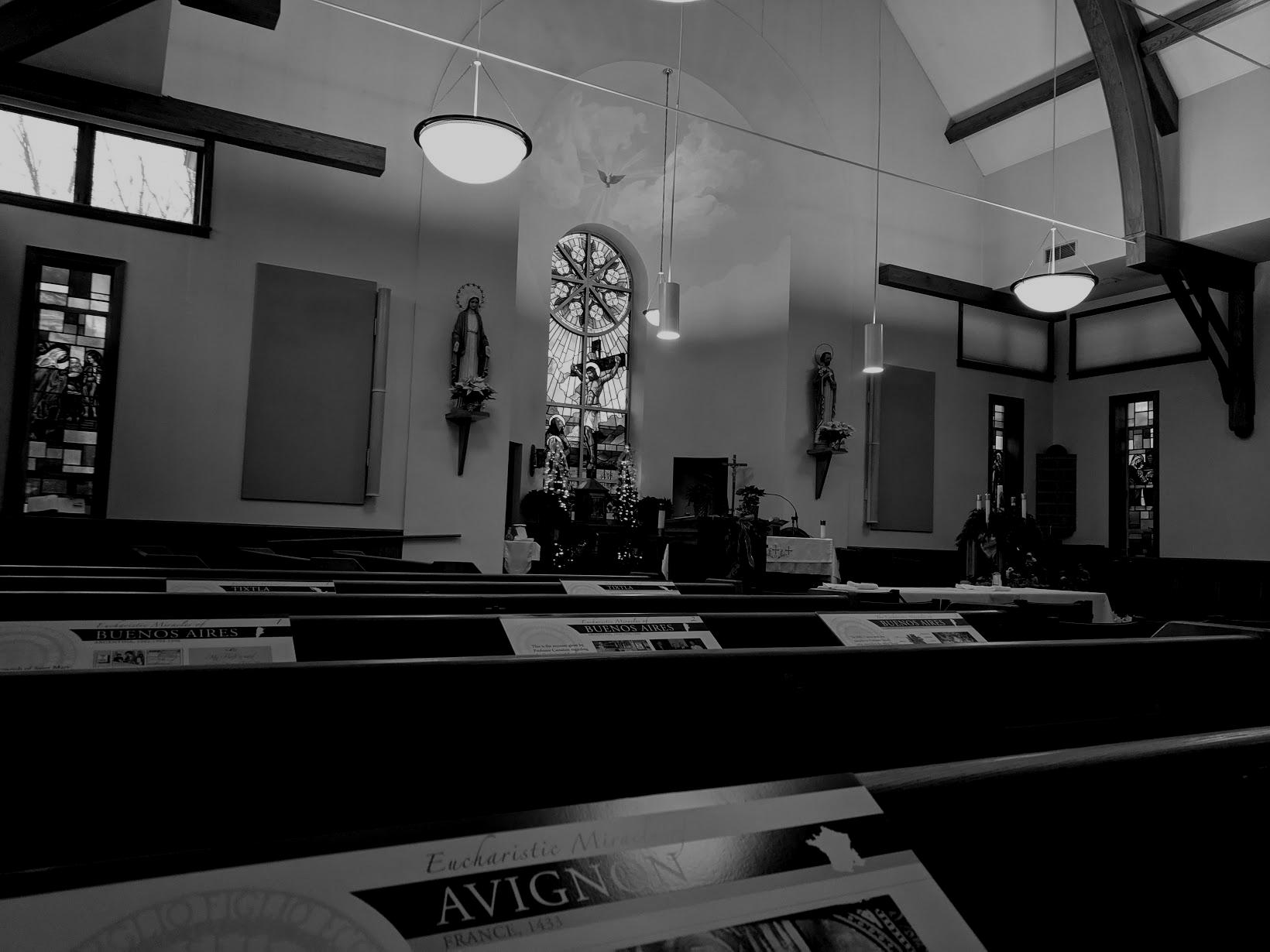The Baptism of the Lord
January 10, 2021 — Year B
Readings: Is 42:1-4, 6-7 / Ps 29 / Acts 10:34-38 / Mk 1:7-11
by Rev. Mr. Eddie Craig, Permanent Deacon
Week after week, we hear four readings from the scriptures. The first reading generally comes from the Old Testament. The psalm generally (but not always) comes from the Book of Psalms. The second reading generally comes from the Letters of the apostles.
We have a three-year cycle of readings for the gospel. In Year A, most of the gospel readings come from St. Matthew. Now, we’re in cycle B, and for the most part the gospels come from Mark. In Year C, they generally come from Luke. The Gospel of John is distributed throughout those years.
If we just listen to these scripture readings, we can get a very clear picture of God, and of Jesus, and of the Spirit. But if we don’t understand the history of the people of Israel, we will miss things. Because the story of the Jewish people is the history of salvation.
It starts out in Genesis. We hear about Adam and Eve and creation. We hear about Abraham, Isaac, and Jacob. We hear about Joseph, and all of this is in Genesis.
In Exodus we start hearing that the people of Israel have been enslaved in Egypt, and Moses leads them out. For forty years they wander in the wilderness. Finally, they cross the Jordan into the promised land. Then we hear about the rise and the fall of the kingdom of Israel.
Throughout all this, we get a picture of God. That God is pretty distant. We’re told that anyone who looks upon the face of God will die. That’s why God speaks to Moses through a burning bush. The whole time the people of Israel are wandering in the wilderness, God is in a cloud, and He’s hidden. The cloud descends on Mount Sinai, and Moses goes up there to talk to Him. But throughout all this, God is “up there,” and we’re down here.
Something happens in today’s gospel. First, God becomes incarnate: becomes man in the womb of the Virgin Mary. He becomes one of us.
Then we hear the story of Jesus’ baptism. Jesus goes into the Jordan, the same Jordan that the Israelites crossed when they entered the promised land. We hear that, once Jesus is baptized, the heavens are torn open. They’re not just open; they’re “torn open.” The barrier between God in heaven and us is fractured.
Then, descending from the heavens, is the Spirit. And when Jesus then comes out of the Jordan, He is stepping back into the promised land, only this time He is Emmanuel, “God with us.” Thus begins the kingdom, the kingdom that John the Baptist had been talking about when he said, “Repent! For the kingdom is at hand.” That kingdom is here now, because God is not just “up there.” God is in our midst.
Throughout the season of Christmas, we get beautiful images of that new kingdom. The first reading from the Midnight Mass of Christmas, from the prophet Isaiah: “The people who walked in darkness have seen a great light. Upon those who dwelt in the land of gloom a light has shone. You have brought them abundant joy and great rejoicing, as they rejoice before You, as at the harvest, as a people making merry when dividing spoils.” That’s just one of the beautiful images of this new kingdom, this new order of things.
We often forget that we’re living in the kingdom. You look at the news, and you look around you: we’re living in the middle of a pandemic. Every day people are dying from this virus. Hospitals are full, in some places to the point where people have to be turned away. It’s easy to despair, to think, how could we be living in the kingdom, when so much is wrong?
In times when it’s hard to see the light, we can hold onto hope. How do we hold onto hope? That same Spirit that descended upon Jesus, descended upon us at our baptism, where we received grace, and we became sons and daughters of God, brothers and sisters of Christ. That same Spirit will descend on the altar in just a little while and turn bread and wine into the body and blood of Jesus.
When we receive the Sacrament, we receive the grace, whether we like it or not. But it’s not magic. That grace doesn’t just change us. It doesn’t force us to act differently. Because grace requires a “yes.” It requires a yes every day. It requires a conscious decision to embrace that grace and to live according to the Gospel.
We have hope, because we know how this ends. We know that one day Jesus is going to come again and will be victorious. That beautiful image of the kingdom that we heard about at the Christmas vigil will be a constant reality. In these times of darkness, if we hold onto that hope, and we say yes to the grace that we’ve received, we can make the world just a little bit lighter for everybody.
 540-586-8988
540-586-8988 

